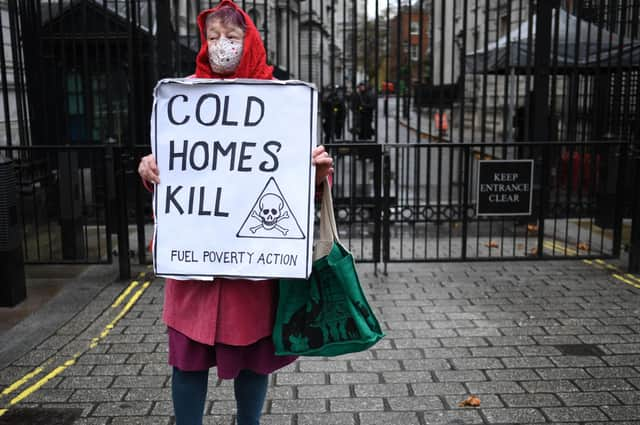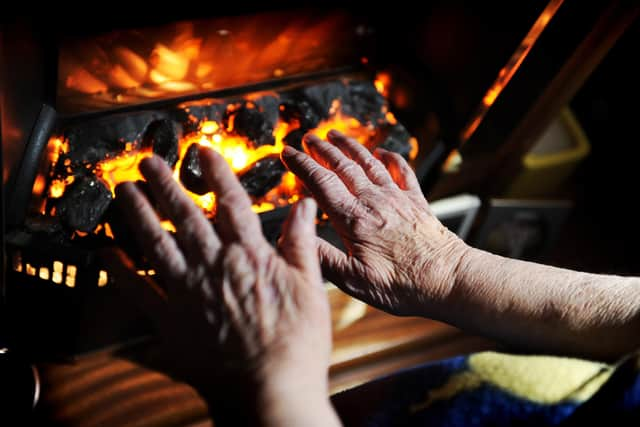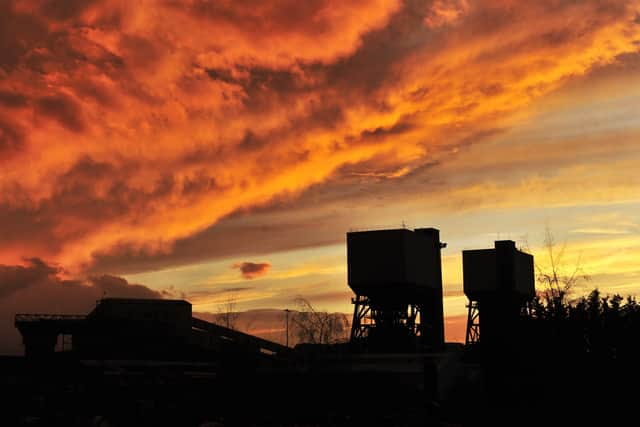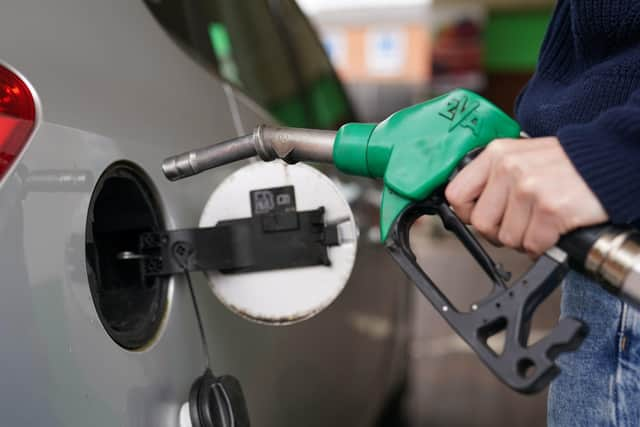How energy crisis will be fuelled by Ukraine war and Britain halting coal production – Bill Carmichael


I certainly took a very sharp intake of breath when the proposal for a new contract from my current supplier landed in my email inbox a few days ago.
Advertisement
Hide AdAdvertisement
Hide AdThe tariff for my combined gas and electricity supply is rising from a hefty £135 a month to an eye watering £257 – a whopping £122 a month increase.


This will take a big lump out of my disposable income, but I couldn’t help thinking how the poorest in our society, including many pensioners in this region, are going to manage.
Energy price rises disproportionately hit the less well off because they spend a bigger proportion of their income on gas and electricity.
Advertisement
Hide AdAdvertisement
Hide AdMeanwhile Vladimir Putin’s invasion of Ukraine is likely to push up gas prices even further, as about 40 per cent of Western Europe’s gas supplies are imported from Russia. OK I can anticipate the criticism of this line of thought – that World War Three has broken out and all I am concerned about is my gas bill.


That is a fair point, but it is also an excellent demonstration how international affairs happening thousands of miles away can have a big impact on our day to day lives. And I make no apology for being concerned about how soaring energy costs are going to impact on the most disadvantaged and vulnerable.
Of course if Putin decided to cut supplies of gas to the West, thereby creating an artificial shortage and pushing up prices, there is little we in the UK can do about that.
But it is important to understand that the current energy problems in the UK and the high prices we are already paying, are as a result of deliberate policy choices by successive governments. In particular, recent governments, driven on by environmental campaigners, have pursued a green agenda that has sacrificed security of supply on the altar of “net zero” carbon emissions.
Advertisement
Hide AdAdvertisement
Hide AdArtificially driving up energy prices by imposing so-called “green taxes” in an attempt to reduce consumption, is part of this policy – and it has had a disastrous impact on the very poorest.


Even before the Covid pandemic, tens of thousands of the elderly poor died unnecessarily every winter – the so-called excess deaths – because they were unable to heat their homes properly.
Environmental campaigners and their cheerleaders in government clearly felt this was a price worth paying to burnish their green credentials.
But it is the security of our energy supplies that should concern us severely as Europe heads towards war. In the UK we have run down clean, carbon-free nuclear power, turned our back on fracked gas, and reduced coal consumption to almost nothing.
Advertisement
Hide AdAdvertisement
Hide AdOf course renewables, such as solar and wind power, are an important part of the energy mix, but they are too intermittent and unreliable to provide the necessary “base load”, as we discovered last autumn when the wind didn’t blow much for weeks. The result is that we are overly reliant on imported gas, and this explains the massive increases in prices.
The contrast with Germany is interesting. Following the accident at the Fukushima nuclear power plant in Japan in 2011, the then chancellor, Angela Merkel, driven on by the powerful green lobby, decided to shut down all of Germany’s 17 nuclear power plants that provided about a quarter of its power generation. The gap in energy production was provided not by renewables, but by burning more coal, in particular brown coal or lignite.
That is right – a green, supposedly environmentally friendly policy resulted in a reduction in clean, carbon-free nuclear energy and a massive increase in the burning of the dirtiest fuel on the planet, belching billions of tons of carbon into the atmosphere.
But as monumentally stupid Germany’s energy policy is, at least they have some energy security. If Putin places his jackboot on the gas pipeline, the Germans can just burn more dirty coal.
Advertisement
Hide AdAdvertisement
Hide AdWhat is the UK’s plan? Cross our fingers and hope the wind blows! We need to plan for energy security for 50 years hence, and that means clean nuclear, and fracked gas, backed up by renewables when the wind does blow. And perhaps, like Germany, we need to start burning more plentiful and comparatively cheap coal.
Support The Yorkshire Post and become a subscriber today. Your subscription will help us to continue to bring quality news to the people of Yorkshire. In return, you’ll see fewer ads on site, get free access to our app, receive exclusive members-only offers and access to all premium content and columns. Click here to subscribe.
Comment Guidelines
National World encourages reader discussion on our stories. User feedback, insights and back-and-forth exchanges add a rich layer of context to reporting. Please review our Community Guidelines before commenting.